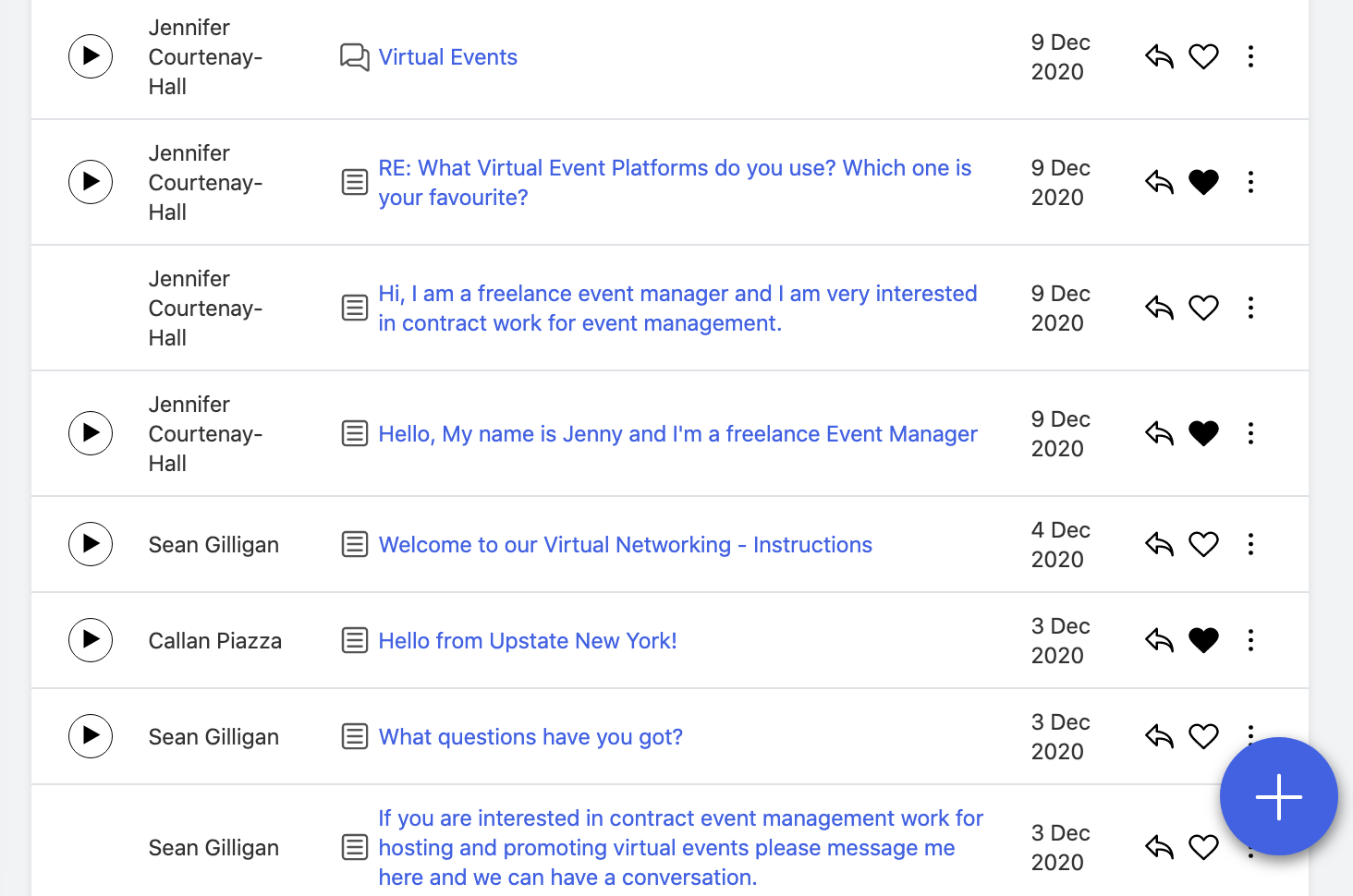Voice Notes for Async Work
Event Anywhere Team
I’ve found that sending a quick message via a voice note is often quicker than sending an email. You get the sense that people are responding quicker and more openly to voice messages as the recipient gets less time to ponder their response before replying. Less planning means there’s less risk of mixing up dates for instance, which can be easy in emails when your response is delayed.
As working from home continues to increase in popularity, many of us are getting Zoom fatigue. Zoom is a great tool that helps us feel like we’re in the same room as our coworkers, but it can also be hard to keep up with all the meetings you need to attend. And if you’re not careful, Zoom fatigue can set in.
30-minute meetings via Zoom can sometimes be a bit too much
Sometimes 30 minutes is too long to get down to business. Often all you need is 5 minutes of someone’s time. Zoom meetings are great for brainstorming, but not always the best way to get down to business. This is where the voice note feature of Event Anywhere comes in handy! You can switch easily between video meetings or avoid video calls by sending voice notes instead to save time.
There are many advantages to having informal business chats over voice notes. Hearing someone’s voice is always nicer than reading someone’s words, as you get a better sense of how they’re actually feeling. You can hear the emotion in their voice. You can also hear what they are saying which you can’t always do with email. You can tell if someone is stressed or angry based on their tone and how they speak.
Sending a quick message via a voice note is often quicker than sending an email
Even when you have time to write an email, it’s sometimes more convenient to just leave a voice note. Sending an email takes longer than sending a short voice message; if you’re in the middle of your workday and don’t want to spend five minutes writing up an explanation for why you’re late, leaving a quick voice note will do the trick!
The informal nature of voice notes makes them more open-ended so they feel less formal and more personal
Voice notes are the modern equivalent of the old-fashioned phone call. They’re informal, they’ve got more personality, and they’re less planned than emails. This makes them more human and less formal than other forms of written communication—so using voice notes in business settings can help you come across as friendlier to your clients. If you want to leverage this advantage when communicating with others, here are some tips for making your voice notes sound effortless:
- Speak clearly and slowly so people can understand you easily
- Don’t be afraid to pause between sentences or paragraphs if it’ll make things easier for your listener
People respond quicker and more openly to voice messages
The main reason that voice messages are more effective than text messages is that they are more immediate. With a text message, you as the recipient have time to think about how best to respond. You can consider what you want to say and how you want to say it before sending your reply. When someone sends you a voice message, however, there is no time for contemplation or deliberation; you must respond immediately or risk seeming rude or uninterested in the conversation. As such, people are often more likely to be honest with their thoughts when speaking out loud versus typing on their phone; this authenticity helps build trust between two parties having an informal business chat over voice notes.
Voice notes are faster than typing
- Less planning means there’s less risk of mixing up dates for instance, which can be easy in emails when your response is delayed.
- More opportunities to respond on the fly and offer feedback during a meeting or presentation rather than at the end of it.
- Voice notes are faster than typing and easier to transcribe because you can simply type the transcription into an email or text message if you want to share what was said with someone else later on.

Voice messaging is more human-feeling than emailing
- People love receiving voice messages because they feel like you’re talking directly to them, and it’s a much more personal way of communicating.
- Voice notes are less formal. They make it easy to speak your mind without worrying about being too formal or forgetting some small detail in your message (such as whether or not you should use a comma).
- Voice notes are faster to respond to than email. If someone leaves you a voice note, they don’t have to wait around while you type out an email response—they can just listen and reply right away!
I think it’s important to remember that we’re still in the early stages of this technology, and there will likely be some growing pains along the way. But I think voice messaging is here to stay, and it has many benefits. I think we’ll see more people using this kind of communication in their daily work lives as time goes on.